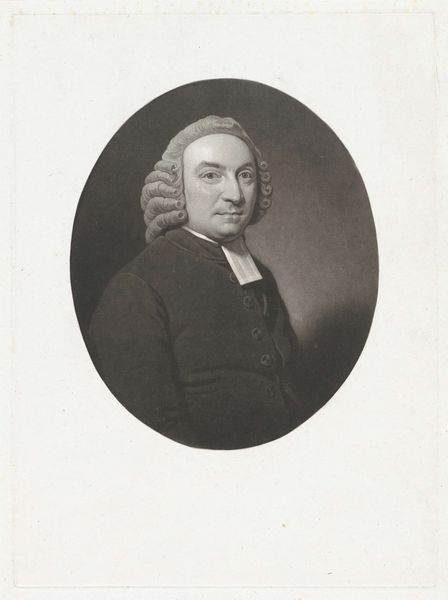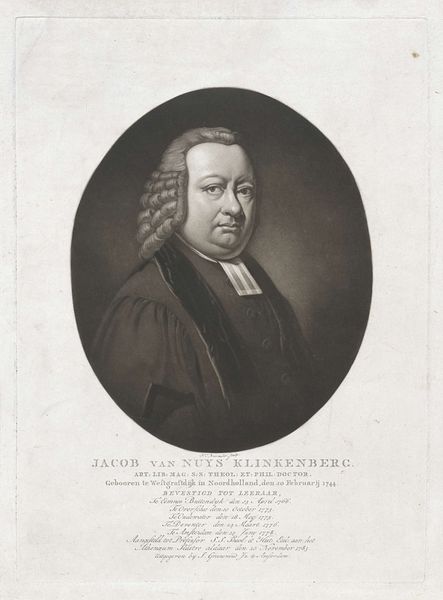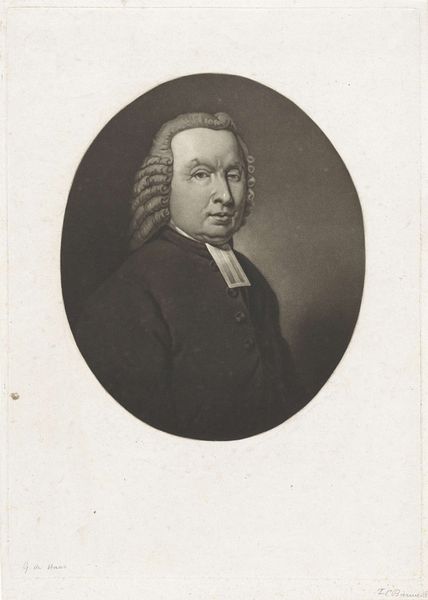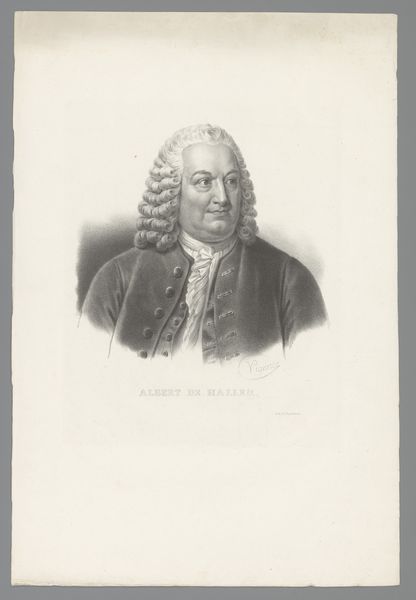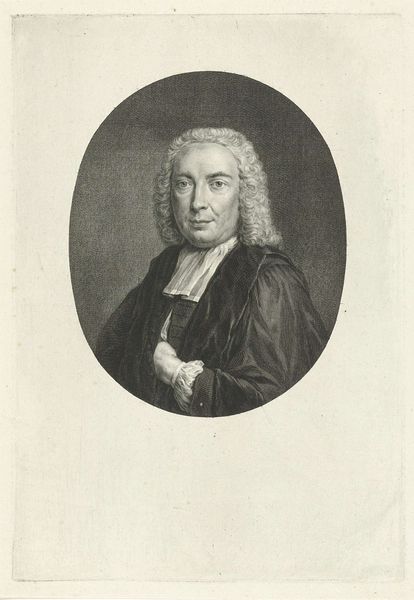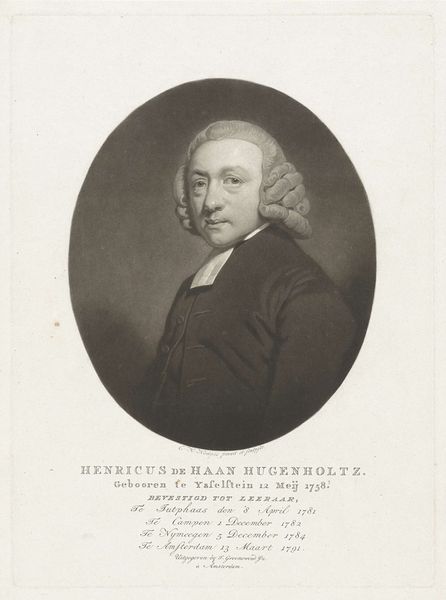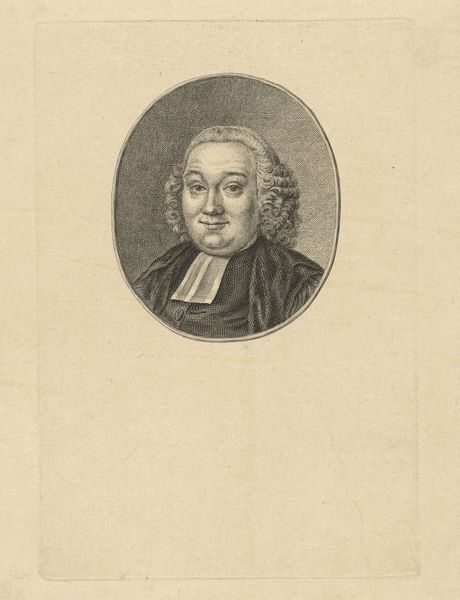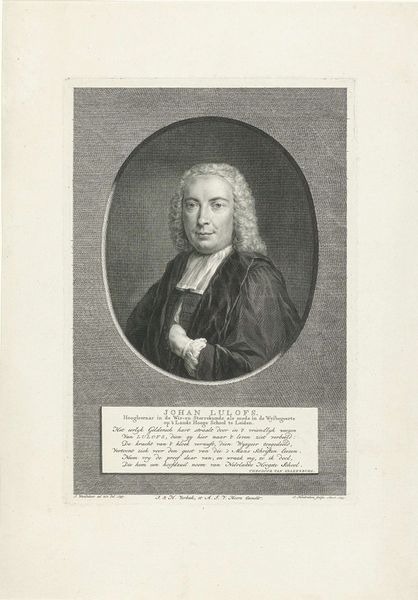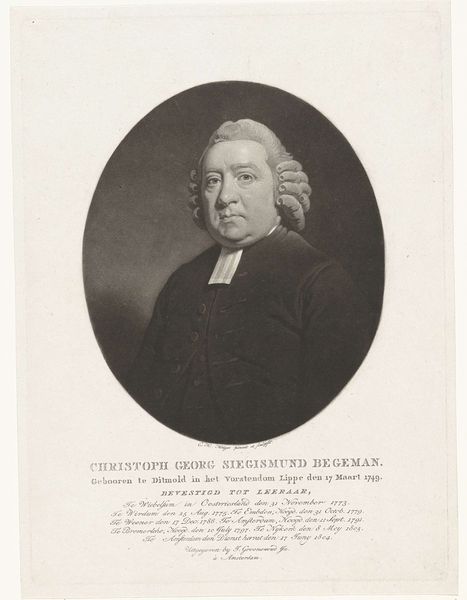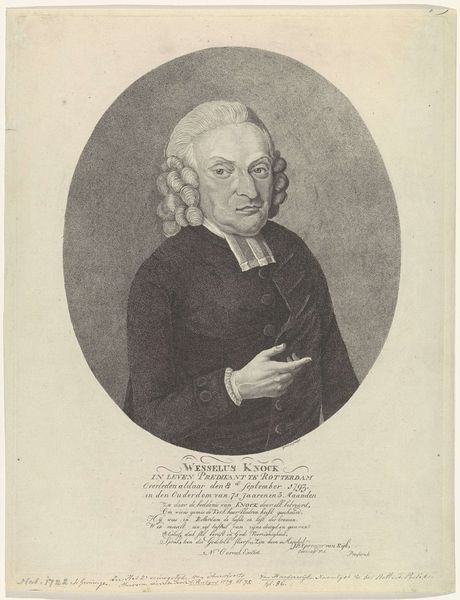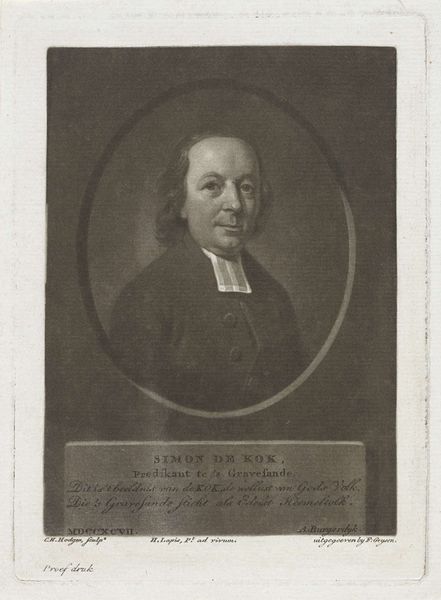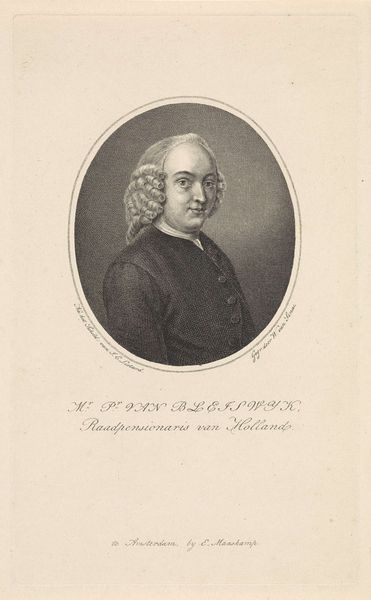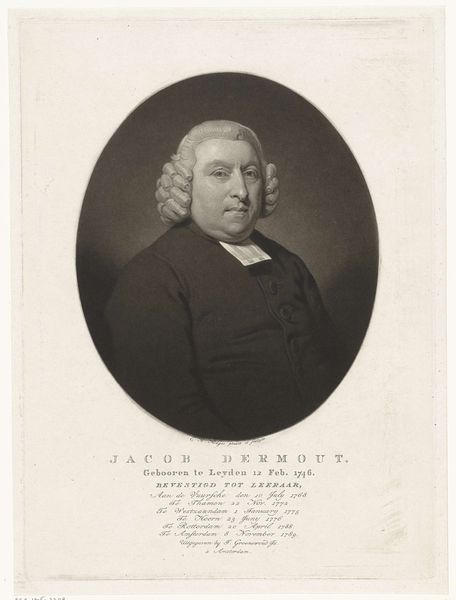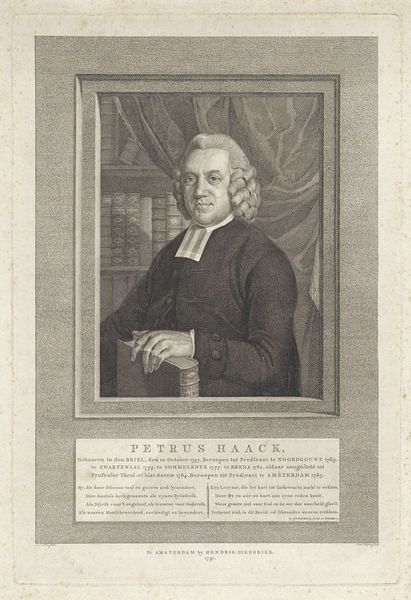
#
pencil drawn
#
photo restoration
#
historical photography
#
portrait reference
#
strong emotion
#
pencil drawing
#
yellow element
#
limited contrast and shading
#
portrait drawing
#
tonal art
Dimensions: height 379 mm, width 279 mm
Copyright: Rijks Museum: Open Domain
Editor: This is "Portret van de predikant Johannes Visch" by Charles Howard Hodges, created in 1804. It seems to be a drawing or print. I'm immediately drawn to the contrasting tones and how the oval shape isolates the subject. How do you interpret the formal elements in this work? Curator: The oval format and limited tonal range contribute to a sense of classical restraint, a feature often found in portraiture of this period. Notice how the artist uses light and shadow to model Visch's face. Do you see how the folds of his garments are suggested with economy? Editor: Yes, the lines are very deliberate. There isn't a lot of superfluous detail; everything seems essential to the form. It almost has a sculptural quality despite being a drawing. Curator: Precisely. Observe also the patterned repetition within the wig and the buttoned coat, both contrasting the smoothness of the cleric’s face. There is a certain visual cadence here, drawing us further to his face. This directs our reading of the subject as more austere than other rococo renderings of the time. Editor: So, it's less about individual expression and more about presenting a man of authority and restraint through form? Curator: Yes, the form is content, and this is not incidental to the image's purpose, being commissioned, and the function of clergymen in the Netherlands at the time. Editor: That's really helpful, looking at it in terms of how form communicates character and social role. I’ll never view portraiture the same again!
Comments
No comments
Be the first to comment and join the conversation on the ultimate creative platform.
